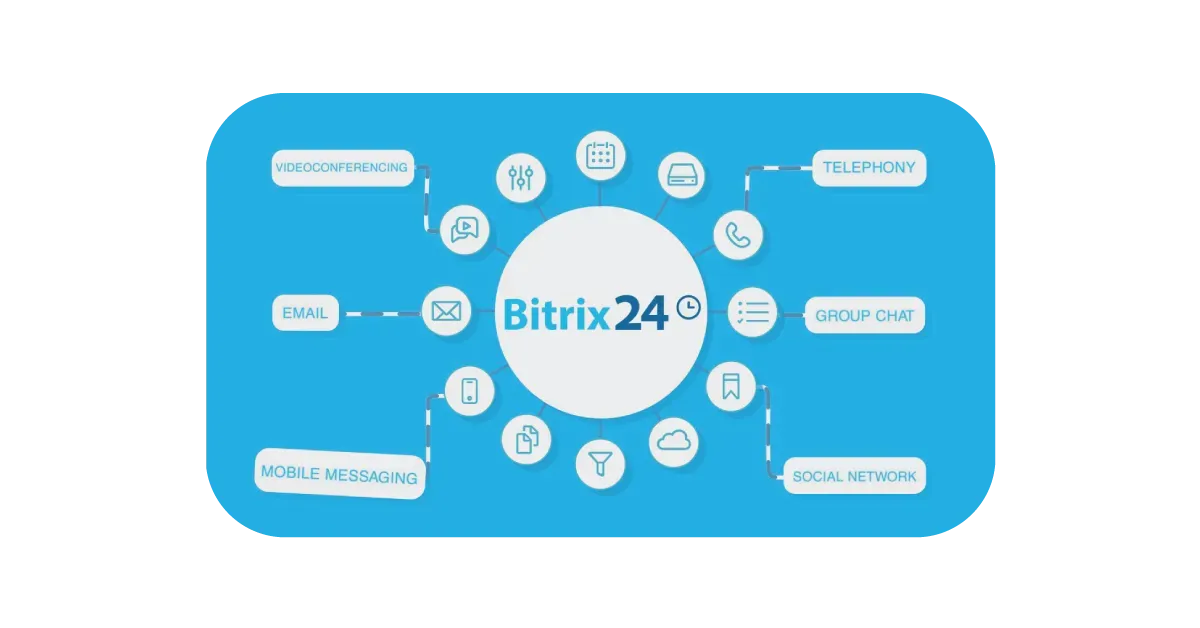Artificial intelligence is changing how companies understand customers. Businesses gain insights into what people want by analyzing data with machine learning. They can then create experiences tailored just for you.
Companies that use AI well will know your needs before you do. Chatbots powered by AI can answer questions anytime, anywhere. Machines that learn mean fewer repetitive tasks for employees, freeing them to focus on customers.
Data from internet-connected devices gives insights into how products are used. Predictions about what you may need next become more accurate over time. Customer service gets faster as issues are fixed before you notice.
Voice assistants controlled by natural language make tasks like shopping easier than ever. Looking ahead, integrating AI throughout business operations will make interactions seamless and intuitive.
Are you curious how the future of CRM might surprise and delight? Keep reading to discover emerging trends and opportunities that bring customers and companies even closer.
A Brief Introduction to CRM
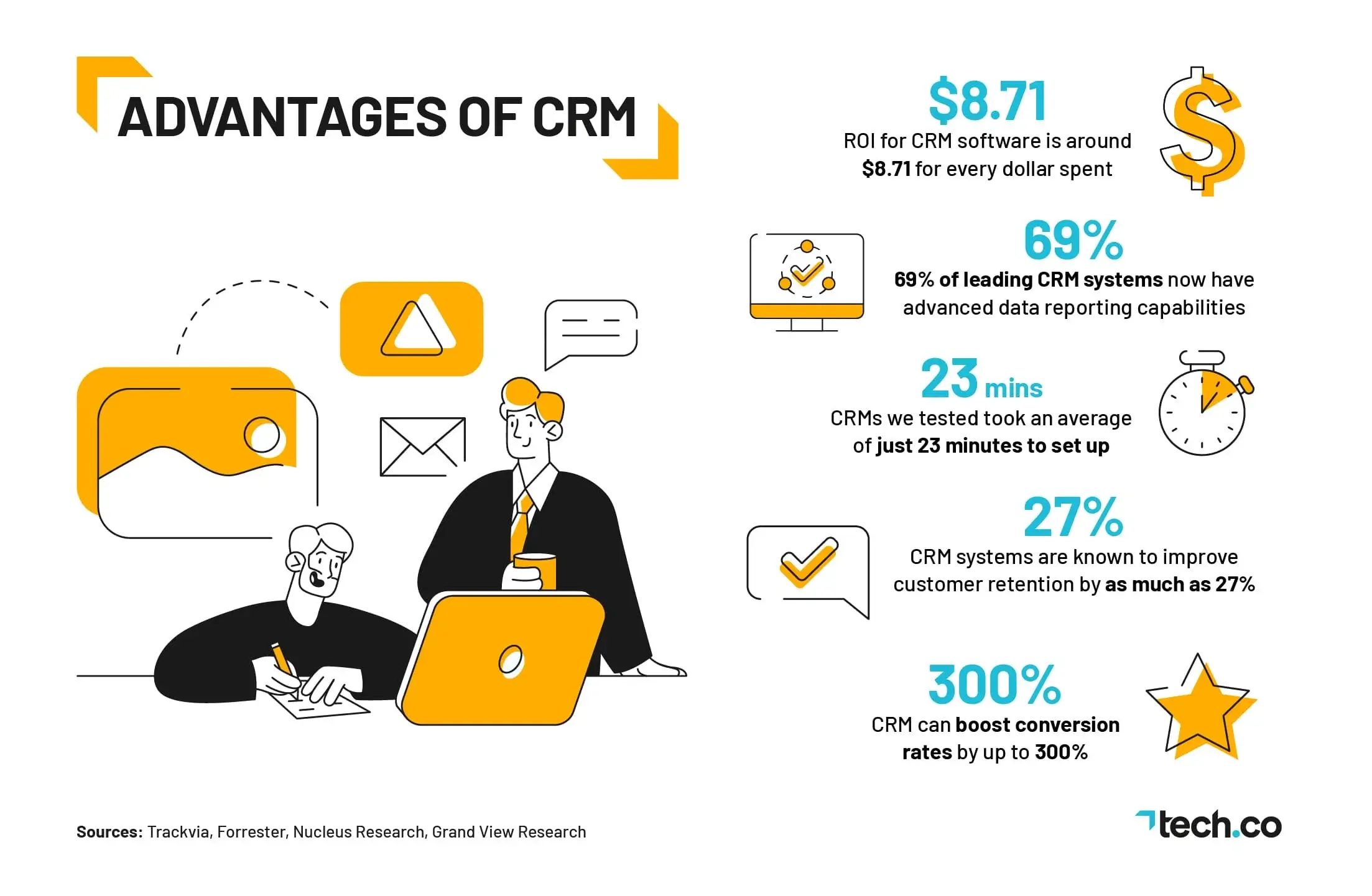
CRM is a holistic approach to managing a company's interaction with customers and potential customers.
It involves coordinating different business departments, including sales, marketing, and customer service, to collect and analyze customer data, improve customer interactions, and optimize customer experiences.
The ultimate goal of CRM is to build long-term, profitable relationships with customers.
The importance of CRM lies in its ability to enhance customer satisfaction and loyalty, which is essential for creating repeat business and generating positive word-of-mouth recommendations.
By gathering and analyzing customer data, companies can deliver tailored experiences, make data-driven decisions, and anticipate customer needs.
CRM practices also help companies identify new business opportunities and improve customer retention rates, which helps drive revenue growth.
Now we need to see the introduction of AI and machine learning in CRM.
Introduction to AI and Machine Learning in CRM
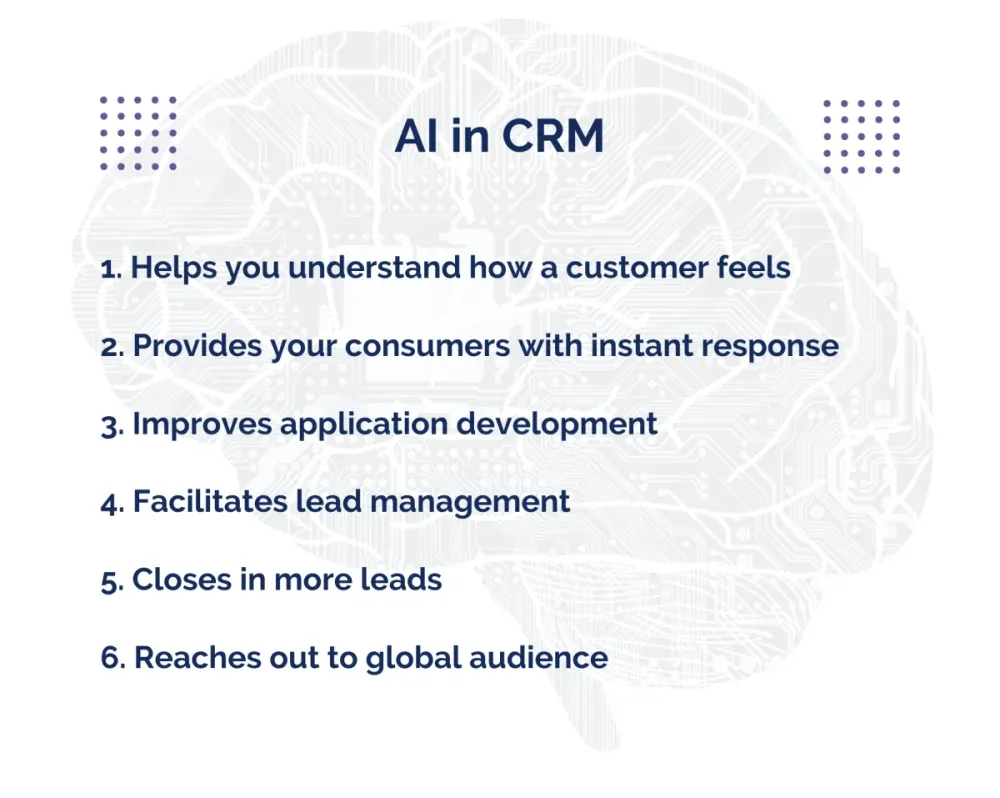
AI and machine learning are revolutionizing the customer relationship management industry by allowing companies to analyze massive amounts of customer data in real-time.
This technology can help companies make more informed, data-driven decisions and automate many manual tasks associated with managing customer interactions.
AI algorithms can analyze customer data, including purchase histories, website interactions, and customer service inquiries, to identify patterns and predict future behaviors.
Using past results and actions as a source of learning, machine learning algorithms may gradually increase the accuracy of these predictions.
By using machine learning and artificial intelligence, businesses better understand the tastes and habits of their clients, personalizing communications and fostering deeper bonds.
After the introduction of AI and ML technology, let us see the benefits of integration.
Benefits of Integrating AI and Machine Learning Technology
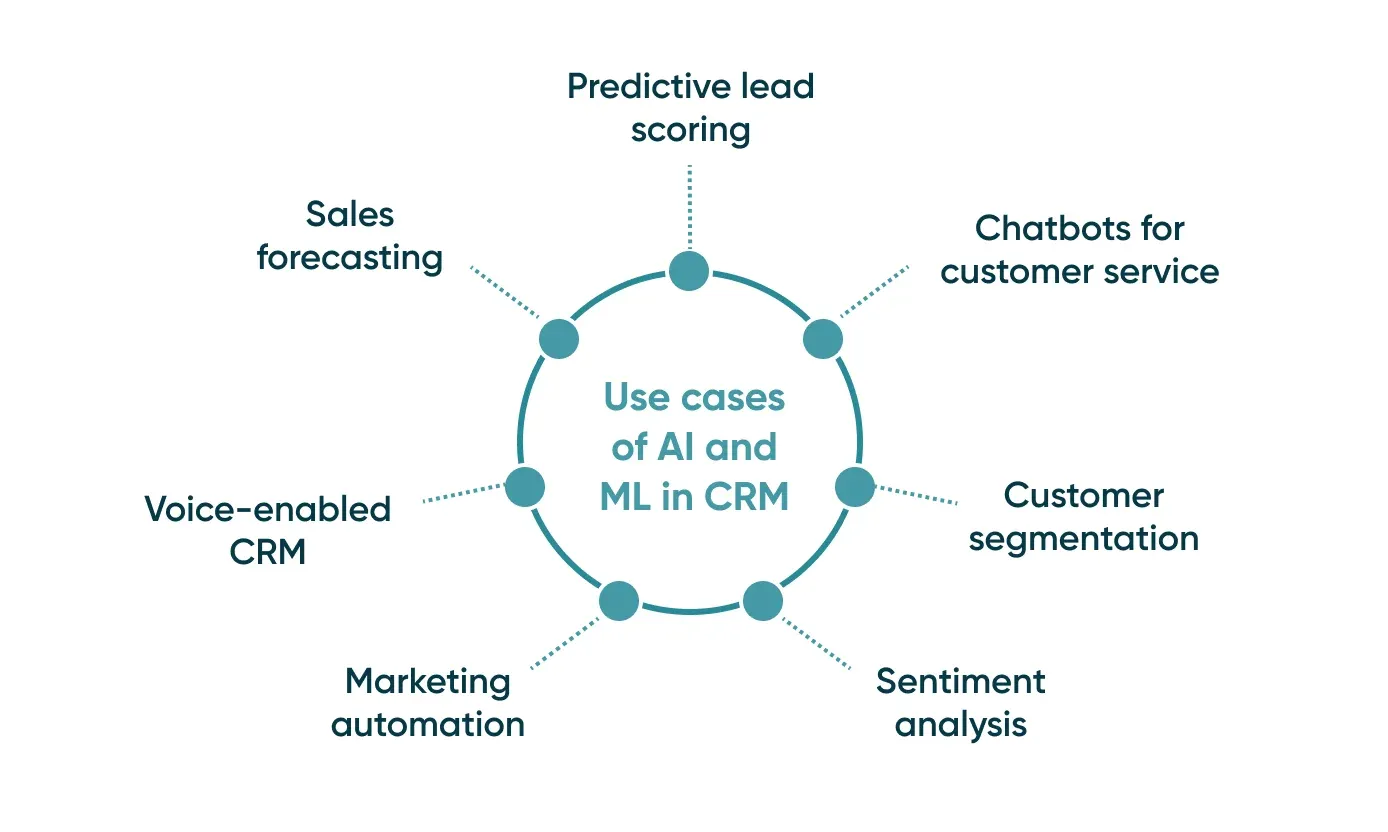
Artificial intelligence and machine learning are transforming how businesses interact with customers.
When integrated properly, AI can improve segmentation, enable predictive insights, automate support, and streamline sales.
Learn how top companies are applying these technologies to boost personalization, anticipate needs, and take service to new levels.
Improved Customer Segmentation
Consumer data may be analyzed using machine learning as well as AI to discover consumer subgroups, build comprehensive client profiles, and forecast customer behavior trends.
Businesses can increase sales and conversion rates by customizing their offerings and messages to particular consumer segments.
Predictive Analytics
AI and machine learning can analyze historical data to predict future customer behaviors, enabling companies to anticipate customer needs and proactively respond to issues.
Chatbots and Virtual Assistants
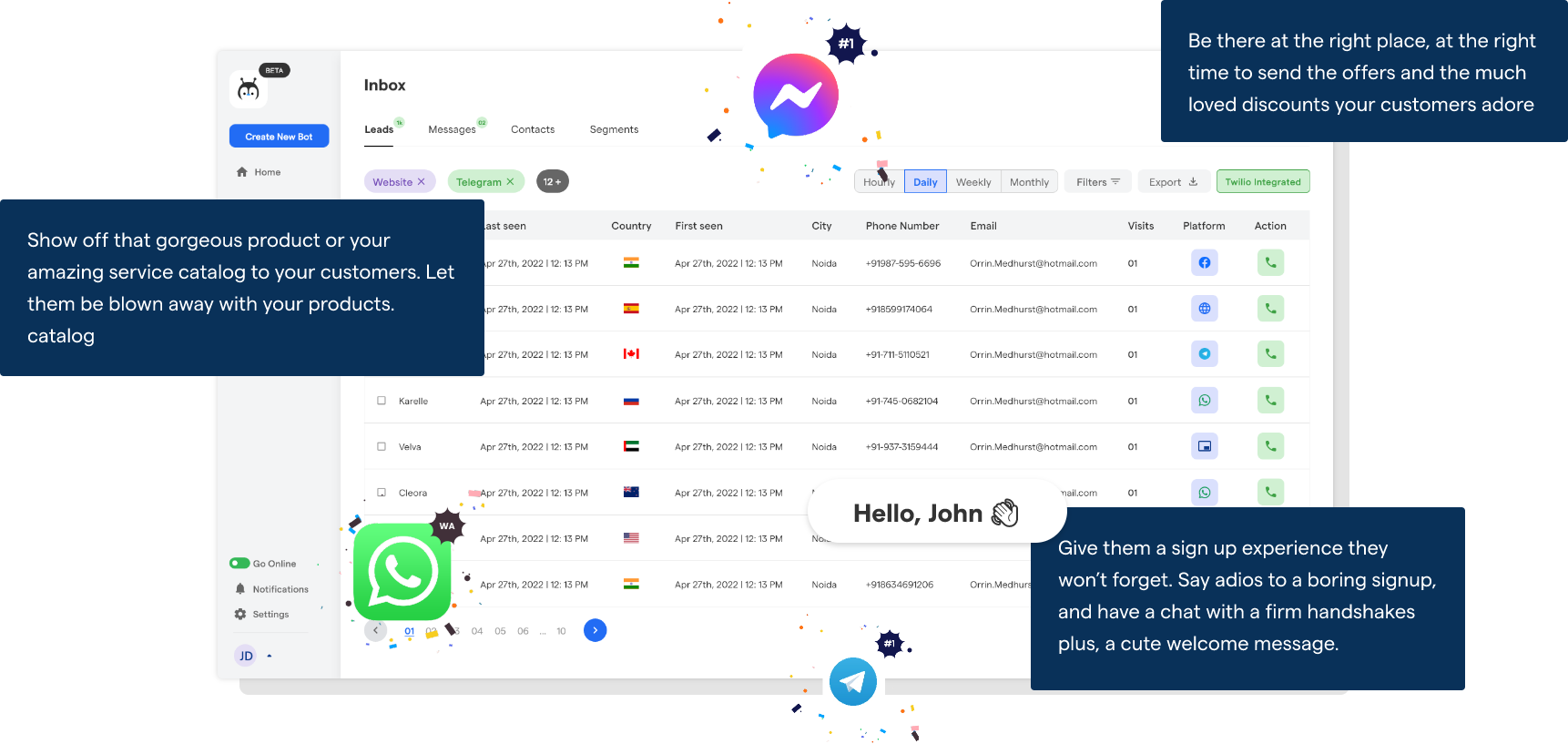
AI-powered chatbots and virtual assistants can automate many manual tasks associated with customer interactions, including answering basic questions, providing product information, and resolving customer issues.
This allows companies to provide 24/7 customer support while reducing the workload on their customer service teams.
Streamlined Sales Processes
AI-powered sales platforms can automate lead scoring, deal tracking, and sales forecasting, streamlining the sales process and allowing sales teams to focus on high-value activities. This can improve sales performance and increase revenue growth.
Let us see the role of AI in customer relationship management.
Suggested Reading:
Role of AI in CRM
Artificial intelligence, or AI, is revolutionizing customer relationship management (CRM) for enterprises.
NLP, machine learning, and other AI innovations have improved customer understanding, streamlined support and service delivery, and improved tailored experiences for enterprises.
A few of the main functions of AI in CRM are listed below.
Understanding Customer Behaviors
One of the primary roles of AI in customer relationship management is to help businesses better understand how customers interact with their brands, products, and services.
Utilizing machine learning algorithms to analyze customer data, businesses can identify patterns, preferences, and trends that inform sales and marketing strategies and enable hyper-personalized customer experiences.
By using these insights, companies can predict customer needs and competition.
Predicting customer needs and preferences
AI-powered CRM systems can anticipate the wants and preferences of their customers by using machine learning algorithms to analyze their historical interactions and behaviors. Businesses may increase client loyalty and retention by using this data to customize their marketing and sales methods. For instance, a company may create highly targeted marketing campaigns, provide upsell and cross-sell chances, or suggest certain items to clients based on past purchasing patterns.
Personalization and enhanced customer experiences
AI can help businesses personalize customer experiences and reduce repeat contact with customers. This enhances overall customer satisfaction and loyalty and, even more importantly, instills increased trust and confidence in your business.
Automated Customer Interactions
Another key role of AI in customer relationship management is to automate customer interactions using AI-powered chatbots and virtual assistants.
This reduces team burnout and the need for increased staffing. AI-powered chatbots can respond to customer queries and concerns 24/7 and provide proactive support without human intervention.
Natural language processing for better customer communication
Natural language processing (NLP) is a subset of AI that helps computers understand human language. By utilizing NLP-powered chatbots, businesses can create positive customer experiences and improve real-time satisfaction. The chatbots can understand customers' input and provide tailored responses to their inquiries, which are much more efficient and less time-consuming than human interactions.
Streamlining customer support and enhancing customer satisfaction
By automating tasks and providing efficient responses, AI-powered CRM systems can help businesses provide better and more effective support, reducing wait times and complex customer service procedures. This ultimately leads to more satisfied customers with faster issue resolution times and fewer tickets needing the attention of customer support teams.
For example, BotPenguin, a free custom chatbot development platform, excels in providing CRM integrations that include popular CRM platforms like ZOHO, Hubspot, Salesforce, Insightly, and many more.
With the combined benefits of CRM and Chatbots, BotPenguin makes automation services like lead generation and customer support more effective by unifying marketing and sales efforts in one place:
- Marketing Automation
- WhatsApp Automation
- Customer Support
- Lead Generation
- Facebook Automation
- Appointment Booking
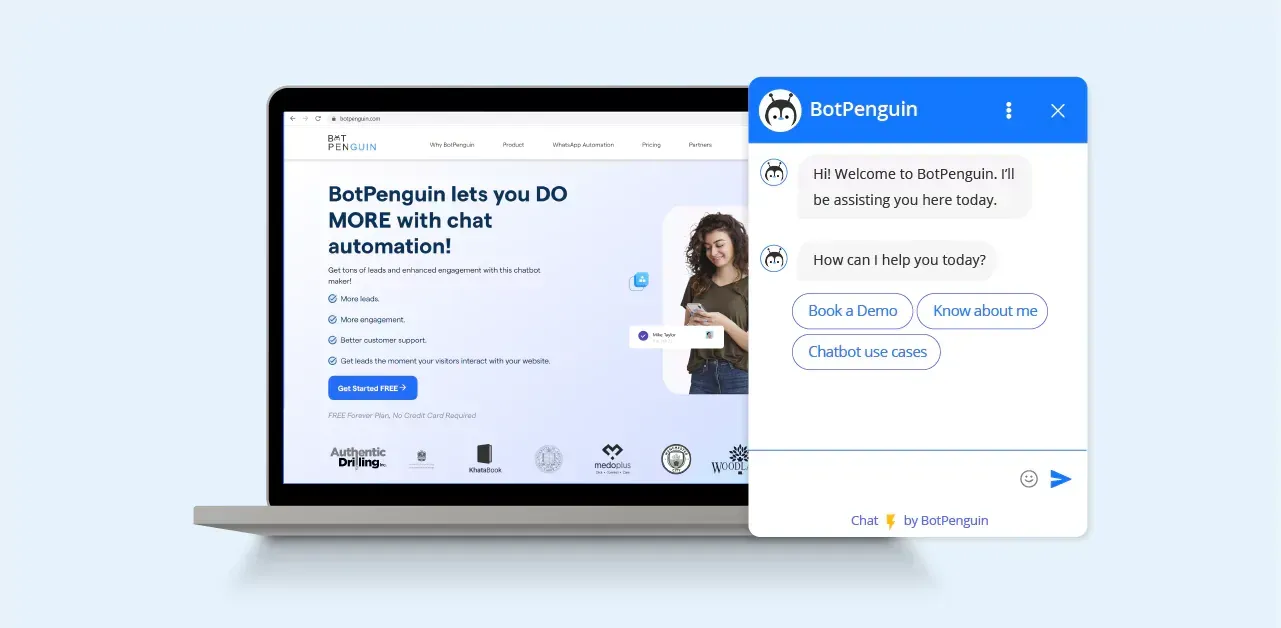
Future Trends and Opportunities
Artificial intelligence is transforming how companies understand and interact with customers.
Advanced technologies like machine learning, predictive analytics, internet of things, and virtual assistants are helping businesses deliver hyper-personalized experiences, anticipate needs and provide seamless support like never before.
This section explores the top trends and opportunities.
Integration of AI and Machine Learning with IoT Devices
With the rise of the Internet of Things (IoT), businesses can integrate CRM solutions and AI with IoT devices to collect vast customer data. This data can be used to improve customer experiences, personalize interactions, and predict future behavior.
Suggested Reading:
Voice-Powered CRM Systems and Virtual Customer Assistants
Voice-powered customer relationship management systems and virtual customer assistants can revolutionize interactions using natural language processing. Customers can use voice commands to get information, purchase, and resolve issues, enhancing the customer experience.
Predictive Analytics for Proactive Customer Service and Support
AI and machine learning-powered predictive analytics can help firms foresee client demands in real-time and give proactive support. This allows organizations to handle problems before they occur, increasing consumer satisfaction and loyalty.
Conclusion
Artificial intelligence is revolutionizing how companies understand and interact with their customers.
By analyzing vast amounts of data using machine learning algorithms, businesses can gain unprecedented insights into what customers want and need.
They can then use these insights to deliver hyper-personalized experiences that anticipate desires before they're even voiced.
As AI capabilities continue advancing, the future of customer relationships is tremendously exciting. Interactions will become more seamless, intuitive, and satisfying than ever before.
Companies that master AI-driven CRM will forge unbreakable bonds with their most loyal patrons—those who don't risk obsolescence.
The winners will be the businesses with the vision and expertise to wield AI as a precision instrument - one that understands customers intimately and fulfills their wishes with flawless accuracy.
Are you ready to have your customers' needs read like an open book?
Suggested Reading:
Frequently Asked Questions (FAQs)
How does AI integration enhance customer relationship management (CRM) practices?
AI integration improves CRM by enabling personalized customer interactions, predictive analytics, and automated processes, leading to more effective customer engagement and streamlined operations.
What are the key benefits of integrating machine learning into customer relationship management (CRM) systems?
Integrating machine learning into customer relationship management systems enables better data analysis, predictive modeling, and automated decision-making, leading to enhanced customer insights, targeted marketing strategies, and improved overall business efficiency.
Can AI and machine learning help in predicting customer behavior and preferences?
Yes, AI and machine learning can analyze customer data patterns to predict future behavior, enabling businesses to tailor their offerings, marketing campaigns, and customer service interactions accordingly.
How can AI and machine learning improve lead generation and conversion rates within customer relationship management (CRM)?
By analyzing customer data, AI and machine learning can identify potential leads, predict their likelihood of conversion, and facilitate targeted marketing efforts, leading to improved lead generation and higher conversion rates.
What challenges should businesses anticipate when integrating AI and machine learning into customer relationship management (CRM) systems?
Challenges may include data privacy concerns, implementation complexity, the need for skilled personnel, and potential integration issues with existing systems, necessitating careful planning and management.


